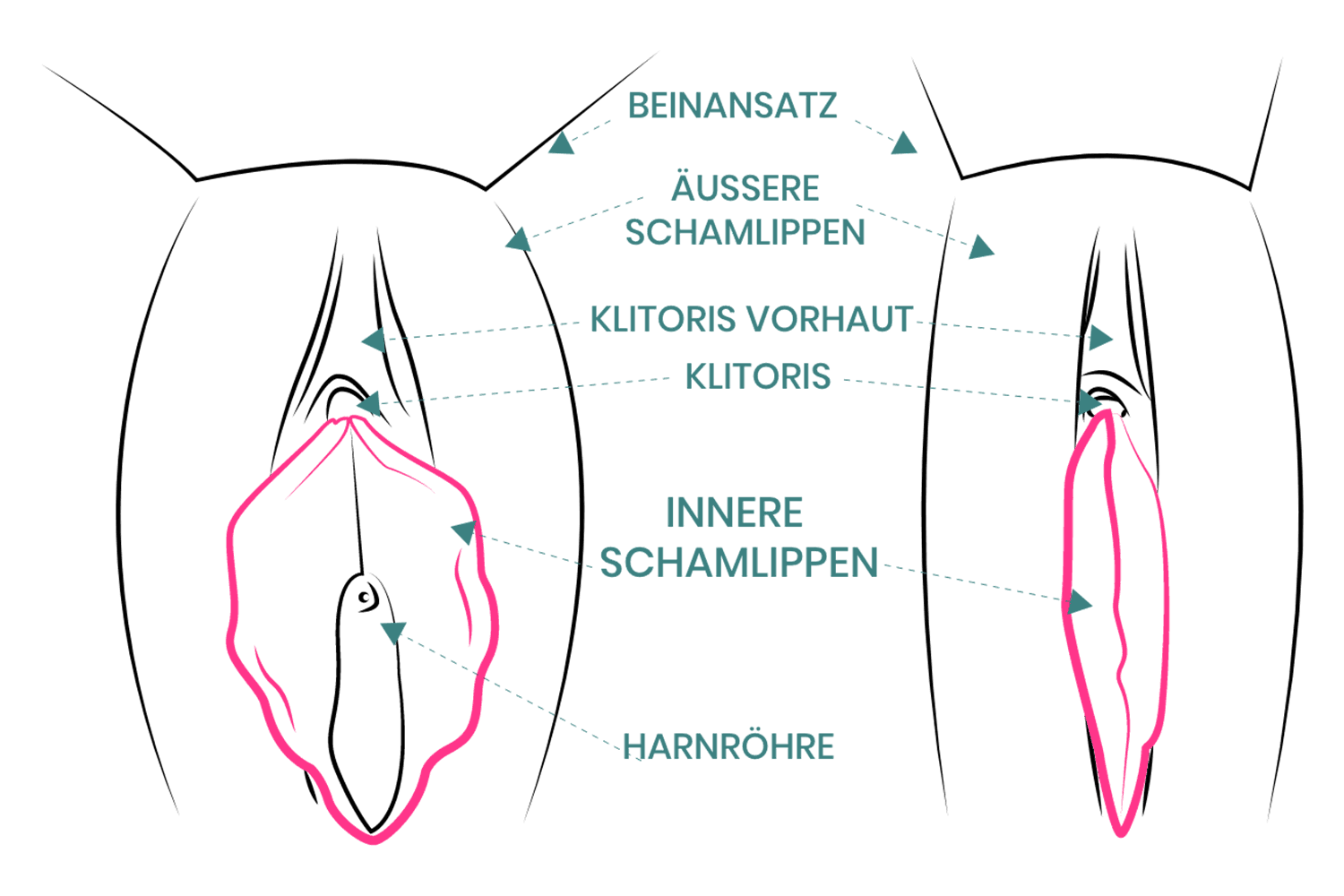1. What is a Labiaplasty?
Labiaplasty refers to changing the external appearance of the internal and/or outer labia. The language currently used is above all meant to describe the reduction of the labia minora.
2 .What possibilities are there for correction of the inner lips?
Inner labia can be aligned, reduced, or completely removed if desired.
3. What are the possibilities for correction of the labia majora?
Outer labia are usually enlarged with autologous fat to cover the inner labia or the vagina better. Sporadicaly oversized outer labia can also be reduced.
4. Is labia correction purely an aesthetic surgery or are there also medical reasons for it?
Basically it is a correction in cosmetic surgery, but there are also functional reasons such as pain or rubbing when wearing tight clothing, sports or cycling, and invagination of the inner labia during sexual intercourse.
5. Does health insurance cover the costs of the surgery?
Since this is usually an aesthetic surgery, the social security institutions do not cover the costs for the operation. When asymmetries or functional problems exist, after consulting with the medical superintendent/chief physician of the health insurance, the surgery is generally approved.
6. Is the surgery performed under local or general anesthesia?
Labiaplasty can usually be performed under local anesthesia. About 50% of my patients opt for a general anesthetic for comfort reasons in order not to witness the procedure.
7. Can the hymen be broken during a Labiaplasty?
During correction of the inner labia the hymen remains intact.
8. During Labiaplasty can the clitoris be damaged?
In all variants of the labia correction, the clitoris and clitoral prepuce remain unchanged of course.
9. How long is the recovery period after a Labiaplasty?
Wound healing is generally concluded after two weeks. One must take care to keep the genital area hygienic after the operation, (sitz baths after defecation, irrigation with dilute povidone-iodine solution or Camillosan after urination, etc.). Sexual intercourse should be avoided for at least four weeks after the duration.
10. What complications can occur?
In experienced hands, complications are extremely rare. They concern mostly the result of (too much, too little or unequally removed) and remain without any health consequences. Medical complications are bleeding, infection or wound healing disorders which also rarely occur.



